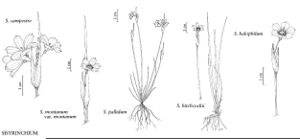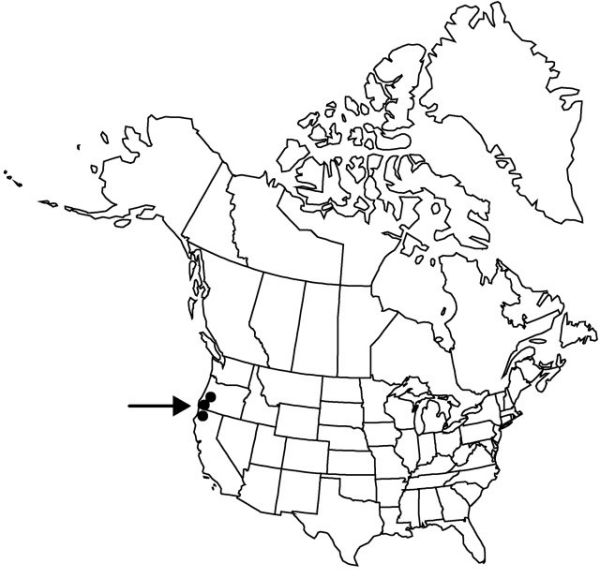Sisyrinchium hitchcockii
Brittonia 28: 170, fig. 4. 1976.
Herbs, perennial, green to dark olive when dry, to 5 dm, not glaucous; rhizomes elongate. Stems mostly simple, 2.5–4 mm wide, glabrous, margins usually entire, similar in color and texture to stem body. Leaf-blades glabrous, bases not persistent in fibrous tufts. Inflorescences borne singly; spathes green, glabrous, keels entire or denticulate; outer 23–37 mm, 6–17 mm longer than inner, tapering evenly towards apex, margins basally connate 5–6 mm; inner with keel evenly curved, hyaline margins 0.1–0.2 mm wide, apex obtuse or truncate, ending 0.1–0.3 mm proximal to green apex. Flowers: tepals purple to dark reddish purple, rarely bluish violet, bases darker purple; outer tepals 15–19 mm, apex truncate or emarginate, aristate; filaments connate ± entirely, stipitate-glandular basally; ovary similar in color to foliage. Capsules beige to light-brown, globose, 6–7 mm; pedicel ascending. Seeds globose to obconic, lacking obvious depression, 1.9–2.5 mm, rugulose. 2n = 64.
Phenology: Flowering spring–early summer.
Habitat: Grassy areas, openings in woods, mostly where somewhat dry later in season
Elevation: 200–1000 m
Discussion
Of conservation concern.
Sisyrinchium hitchcockii is endemic to the southern Willamette Valley and the Roseburg area of Douglas County, Oregon, and to Cape Ridge, Humboldt County, California. It often occurs in mixed populations with S. bellum. The lack of yellow tepal bases and the extensive rhizomes are the most distinctive features.
Selected References
None.

